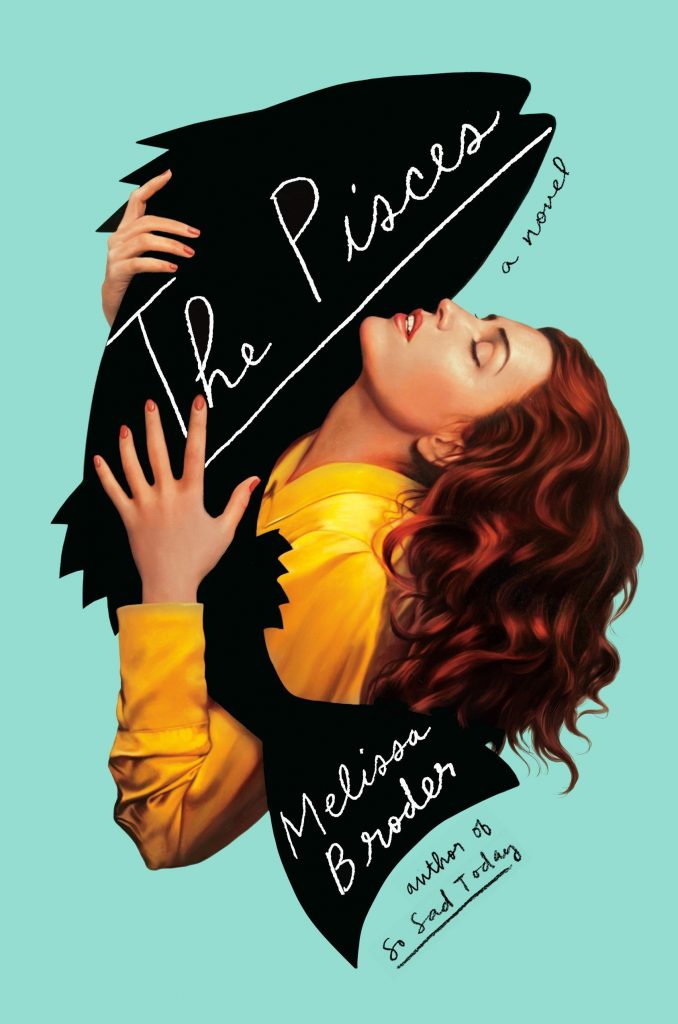I was trying to ask her in a roundabout way if it was worth it. We felt the same nothingness, of that I was sure. But I wanted to see if she knew we were going to be okay or not. Or, at least, if I was. I was asking life advice, couched in the language of suicide, from a friend in a mental hospital. This was the direction my life had taken.
I picked up this book just prior to going to Worldcon. My choice was no accident. I’ve been enjoying reader reviews of The Pisces for some months now – the way this novel has divided opinion has made me insatiably curious about it – and I thought it would be a suitable companion for my first trip to Ireland. I wasn’t wrong. ‘Perfect summer read’ is not the kind of descriptive language I would normally go in for but in all the best possible ways – it’s set in California, it’s about a holiday romance with a merman – The Pisces is exactly that.
Magical, provocative, hilarious. I loved this book so much more than I ever expected to.

Lucy has accidentally broken up with her boyfriend, Jamie. She’s also stuck – interminably stuck – on her doctoral thesis, an exploration of silence in the work of Sappho. When her sister Annika suggests she spend the summer dog-sitting at her home in Venice Beach, Lucy can’t think of a reasonable excuse to say no, not even when Annika enrolls her in a group therapy circle attended by women driven to distraction by their pursuit of unavailable men.
It is only when Lucy meets Theo that the stage is set for romance of a more mythic variety. Is Theo simply the best sex of her life, or the embodiment of what Lucy, Sarah, Claire and maybe even Dr Jude are all secretly looking for: perfect love?
Negative critics of The Pisces seems to fall into two distinct brackets: those who dislike the explicit and occasionally startling portrayal of sex and the body that characterises the first half of the book especially, and those who find the characters – Lucy especially – unlikable and ungenerous. There is no doubt that the tone of Lucy’s narrative is bracing, not to say caustic, but rarely have I found a novel or a protagonist that speaks so honestly and with such deft, dark humour about what it is really like for a woman to grow up and come of age in a society which values her attractiveness to men, her ability to get and keep a man – scrap that, shall we just say MEN? above all else.
Such a (hilarious) relief, to see men – naked – through the female gaze for once. So poignant, such a vindication to have the corrosive effects of love addiction and the low personal esteem at its root dragged out into the open.
If some have called The Pisces savage and unfeminist, I call it savagely healing and one of the most unapologetically feminist novels I’ve read.
That the novel simultaneously plays out as a mysterious and satisfying work of speculative fiction makes it doubly pleasurable. As an examination of the habits of mer-people – how they see themselves reflected in our literature and through the lens of the human gaze – The Pisces is a delight, a ludic romance of ideas and mythology. Our discovery that Theo’s siren call turns out to be just that – a calculated seduction, a descent into delusion with potentially deadly consequences – leads us ultimately towards an ending that feels rewarding and true.
It makes a certain kind of sense to group this book with recent novels by Ottessa Moshfegh (My Year of Rest and Relaxation) Laura Sims (Looker) and Halle Butler (The New Me) – novels that have all boldly examined the female condition from the inside out. What makes The Pisces my favourite of an exceptional bunch is its leap into the vaster spaces of the fantastic. Lucy’s thoughts on Sappho are marvellously rendered, the novel’s understated satire on the self-serving nature of academe both delicious and accurate. The Pisces was a delight for me in every way, a further revelation of the versatility and imaginative richness of speculative ideas.